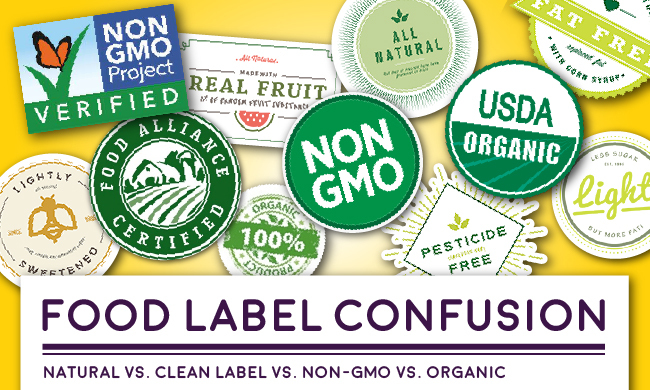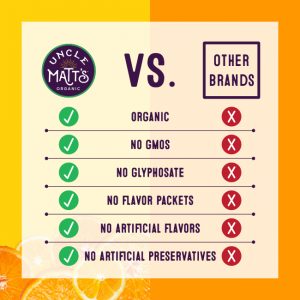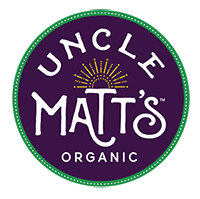Food Label Confusion: Natural vs. Clean Label vs. Non-GMO vs. Organic

Here’s the scoop on what each label means, and why organic is the gold standard.
Those stickers on food packaging can be confusing. We get it. Natural. Clean label. Non-GMO. Organic. These are buzzwords we see across billboards, commercials and on food packaging, but what do they mean? What’s the real difference between these terms, and what should you be paying the most attention to while grocery shopping?
Natural: According to the U.S. Food and Drug Administration, there isn’t a formal definition for the use of the term “natural” on food labeling. The current policy primarily aims to indicate “natural” labeled food items aren’t synthetic or contain no artificial colors. However, the term “natural” doesn’t cover other characteristics of food evaluation such as food production and manufacturing. Therefore, foods labeled as “natural” shouldn’t be assumed to have been produced without exposure to herbicides and pesticides. The FDA has also not yet evaluated using the term “natural” alongside any nutritional standard.
The U.S. Department of Agriculture defines “natural” as “meat, poultry and egg products that are minimally processed and contain no artificial ingredients.” However, this labeling doesn’t apply to food items that don’t contain those products, and this definition is not applied to farming practices.
Clean Label: This is another term without a formal definition, and according to this article by Food Navigator USA, is an “always evolving” label. Because there isn’t any regulation around using “clean label” by the FDA, it is open to interpretation. This can then mean a variety of things to different people: a lack of artificial coloring, unprocessed food, few total ingredients on the nutrition label, an ingredient list of recognizable items or even being healthy.
“Clean label” listed on its own shouldn’t be assumed to definitively mean that the products are non-GMO, free of exposure to pesticides or certified organic without regulated seals or verifications to confirm that this is true.
Non-GMO: A GMO is a genetically modified organism that doesn’t occur naturally in nature or through traditional crossbreeding. GMOs have been genetically engineered in a lab. Non-GMO ultimately means that a particular crop or food item is either not produced through genetic engineering or has not been produced from GMO ingredients. You’ve likely seen the Non-GMO Project butterfly logo across packaging while grocery shopping. This is a third-party non-profit verification that has set a firm standard for what it means to be non-GMO. To learn more about the Non-GMO Project standard and evaluation, you can visit their website here.
While being verified by the Non-GMO Project is a great step in evaluating your food choices, there are certain standards that this verification does not evaluate. For example, non-GMO doesn’t necessarily mean that the product is “GMO-free” due to the many opportunities there are in the production environment for contamination. The verification also doesn’t evaluate exposure to glyphosate or certify the product as organic.
Organic: The USDA certified organic seal is the gold standard in food labeling. This seal guarantees that your food is non-GMO, has no artificial ingredients and was produced without antibiotics or exposure to prohibited pesticides. There is a rigorous process involved in organic certification, including an extensive review of every step of the growing and production process. This certification also must be renewed annually. To make it simple, certified organic means that the connotations associated with using terms like natural, clean label and non-GMO have actually been thoroughly reviewed, evaluated and certified by the USDA.
When it comes to what you should and shouldn’t be eating and the choices you make in the grocery store, that is ultimately a personal preference. One of our goals here at Uncle Matt’s is to educate consumers around the differences in labels and product marketing associated with living a healthy lifestyle. We encourage you to pay close attention to your food labels so you can make the best decisions for you and your family, so we can all work together to grow and inform a healthier generation.


